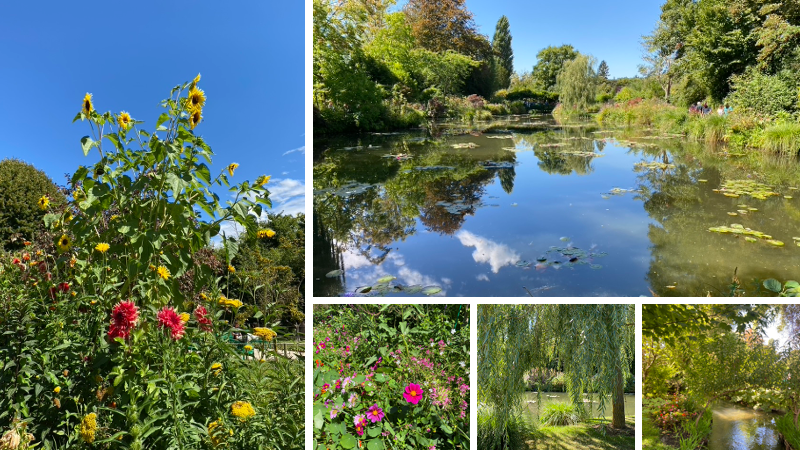7th September 2025

Seeing with Fresh Eyes
This time last week, on a very hot summer's afternoon, I was visiting Monet's house and gardens at Giverny in Normandy. Monet, we know, gained inspiration from his garden, painting the enormous Water Lilies series from the bridge over the lake.
Whilst on holiday, I also read a novel, "Shy Creatures" by Claire Chambers. One of the central characters of the novel has an amazing gift for art. In a telling description, the author writes that, before putting pencil to paper, he would always simply look for at least fifteen minutes at the tree, flower or creature he wanted to draw.
I wonder if one of the reasons why we human beings make such a mess of looking after God's world is that we simply fail to look at God's world. How many times do I walk through the parks, my mind on the next thing, failing to notice the beauty that is there? Have I ever sat and simply looked for even five, let alone fifteen, minutes at a tree, a plant, an animal? (And, the unanswerable question, would doing so turn me into an artist?)
It's possible that in ancient times, without phones to distract them, people spent more time looking. Certainly, the writer of Psalm 104 must have spent considerable time simply observing the beauties of God's creation before painting his beautiful word-portrait:
"You make springs gush forth in the valleys;
they flow beneath the hills,
giving drink to every wild animal;
the wild asses quench their thirst.
By the streams, the birds of the air have their habitation,
they sing among the branches..."
(Psalm 104:10-12)
In the twenty-first century, we have become detached from creation. Our food comes neatly packaged from the supermarket; we order our clothes online. When we are detached, we do not love, and what we do not love, we do not prioritise. Perhaps the first step towards us caring better for God's creation is to learn to see it with fresh eyes.
So a creation season challenge: what if we spent just five minutes this week simply sitting and looking at something natural in our gardens, or in a local park? What might we see? What might we learn? How might our looking change us?
As the poet, William Henry Davies, wrote:
"What life is this if, full of care,
we have no time to stand and stare?"
